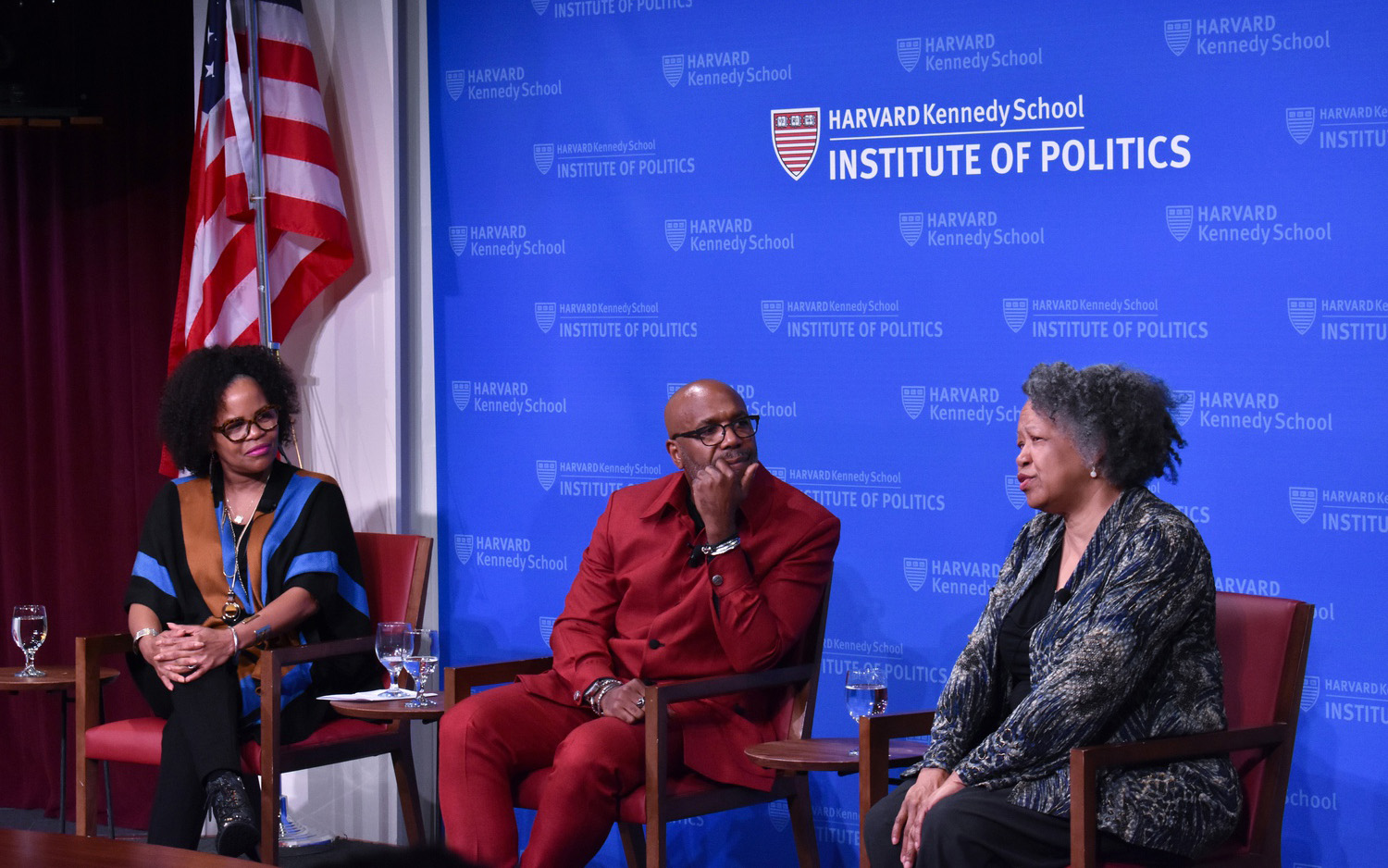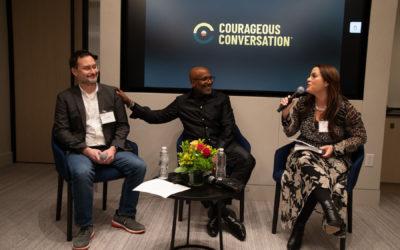By Michelle Bulin and Julia A. Maciejak—Dec. 1, 2022
Racial justice advocates shared methods to spearhead racial equity and bolster institutional change in a Harvard Institute of Politics forum on Wednesday.
The forum, the last of the fall semester, was part of a larger speaker series on racial justice called “Looking Back, Paying it Forward” jointly hosted by the IOP and the Institutional Antiracism and Accountability Project at the Ash Center for Democratic Governance and Innovation.
Moderated by former Boston mayor Kim M. Janey, the panel featured Gail C. Christopher, executive director of the National Collaborative for Health Equity, and Glenn E. Singleton, founder and president of Courageous Conversation.
Christopher kicked off the event by highlighting what she described as a lack of reckoning with racial injustice in America.
“Over 44 countries in the world have implemented truth and reconciliation processes,” she said. “Our country has yet to implement a national truth process.”
In response and aiming to spark “transformation of the cultural ethos” in America, Christopher developed the Truth, Racial Healing, and Transformation framework for racial equity. The program focuses on changes in two broad categories: narratives and structures.
“The first is narrative change: understanding that we don’t tell the truth about our story. As a country, we don’t own up to our history,” she said.
Singleton credited his experience as a graduate student studying the educational system as his impetus for developing the Courageous Conversation protocol for interracial dialogue.
“I discovered inequities in K-12 education — and particularly secondary education — that absolutely astounded me,” he said. “You have all of these students, as you get to the back [of the school], who begin to look like me, who really don’t know why they’re there.”
“And the big conundrum was that folks in the school could not even talk about these issues,” Singleton added.
Read more at The Harvard Crimson.




